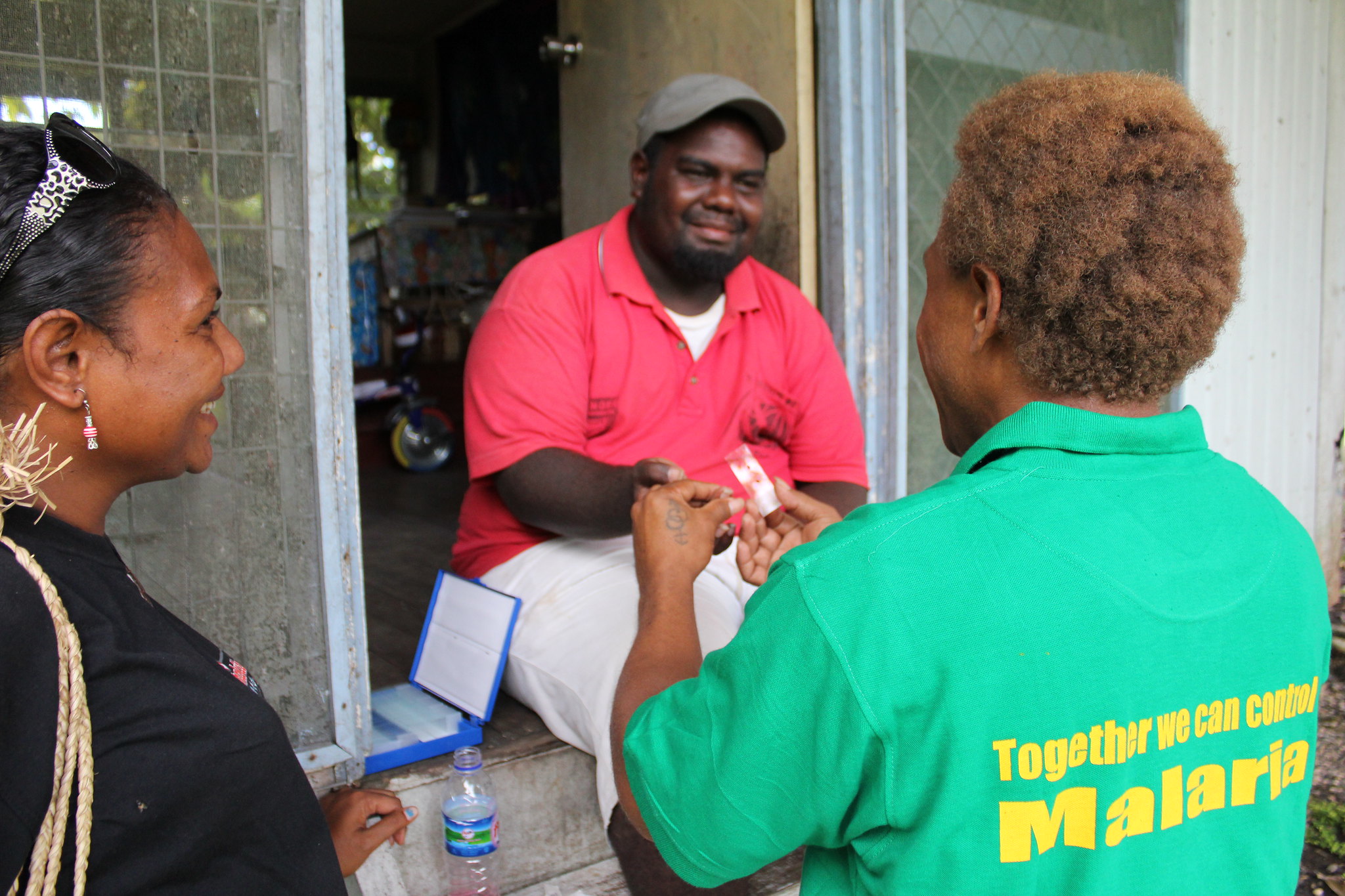
Between 1992 to 2014, the Solomon Islands has made great progress in reducing its malaria burden. However, malaria cases have spiked rapidly in the years that followed. As per the World Malaria Report, more than 70,000 cases were recorded in 2019. This resurgence has derailed what was a path to malaria elimination by 2030.
To bring the country back on track, the new National Strategic Plan is now focused on prioritizing investments to improve malaria control and prevention and ultimately, achieve an updated goal of zero malaria cases by 2034.
One of the remaining challenges the plan needs to address is the difference of malaria burden across the islands. The majority (86%) of malaria burden only comes from four provinces—Central Island, Guadalcanal, Honiara, and Malaita—which are still in malaria control phase. On the other hand, the provinces of Chouisel and Isabel have low enough cases to enter pre-elimination phase. This calls for an elimination-ready case-based surveillance system to ensure quality, timely and complete data collection, able to inform and strengthen the country’s malaria response.
In response to this need, an online Capacity Building Workshop on Malaria Case-based Surveillance and Response was organised by Jiangsu Institute of Parasitic Diseases (JIPD), supported by APLMA-APMEN and hosted by the WHO Collaborating Center for Research and Training On Malaria Elimination last August 2021.
Drawing from JIPD’s experience in developing and implementing China’s 1-3-7 surveillance system, the workshop focused on building the capacity of the Solomon Islands core malaria program team on elimination-ready surveillance: what it is, how to set it up, as well as testing a case-based surveillance system for case report, case investigation, and focal response. The workshop also tackled addressing potential challenges and lessons learned from Thailand for a better understanding of case-based surveillance and response system in malaria elimination.
“We would like to thank Dr James Kelley, WHO WPRO, Dr Prayuth Sudathip, DVBD Thailand, and Dr Qi Gao, Mr. Yuanyuan Cao and Mr. Cheng Liang from JIPD for supporting this workshop. This collaboration ensures Solomon Islands’ core malaria program team have a better understanding of effective malaria control strategies and are empowered to implement case-based surveillance and response systems in the country.”
The Solomon Islands malaria program plans to conduct operational research in selected low burden provinces to adopt the surveillance system based on a ‘2-4-7 model’. The knowledge and tools provided at this workshop has equipped and improved the understanding of the core malaria team to setup a case-based surveillance and response system at the provincial level and elimination setting in the future.
Indeed, the path toward ending malaria in Asia Pacific is a shared responsibility. Cross country collaboration for learning and coordinate action is equally important as identifying country specific solutions, tailored to local context. The recent collaboration between China, Solomon Islands and Thailand is a commitment to this responsibility that will continue to be a pillar and propeller of our fight against malaria.
